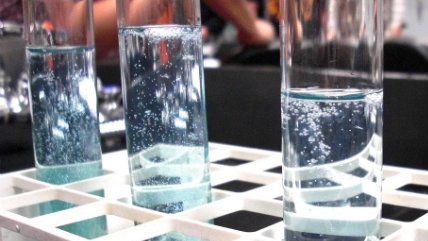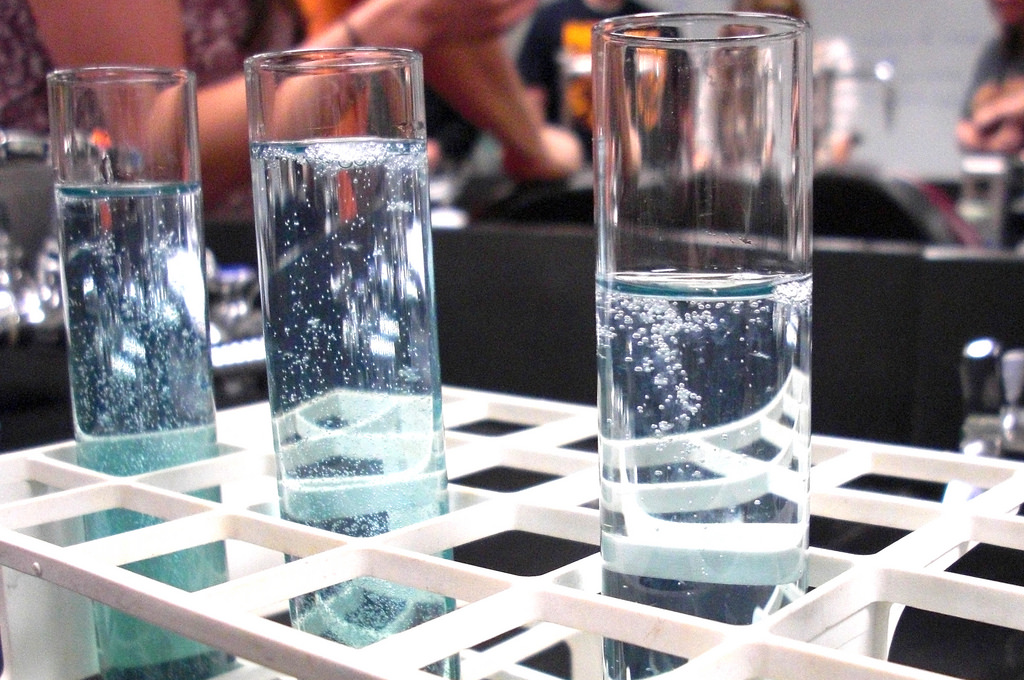The Trouble With Skin-Cell DNA Evidence
"Touch DNA" evidence can easily implicate the wrong person, yet police are increasingly relying on it.


American law enforcement is increasingly relying on DNA evidence from skin cells—even though it can easily implicate the wrong person.
"DNA collected from skin cells left on objects such as door handles and guns is increasingly being used as evidence in criminal cases," according to ABA Journal blogger Debra Cassens Weiss. "But new studies show a person's DNA can be transferred to an object that is never touched by the person, raising questions about the reliability of such samples."
In one case study, presented at the February 2016 meeting of the American Academy of Forensic Scientists, a homeless man named Lukis Anderson was charged in the murder of wealthy tech investor Raveesh "Ravi" Kumra. But it was later revealed that Anderson had been hospitalized at the time of the murder. Paramedics who had taken him in later transferred his skin cells and DNA, inadvertently, to the murder scene.
Anderson's case "provides one of the few definitive examples of a DNA transfer implicating an innocent person," notes Peter Andrey Smith at Scientific American. Yet there have been several recent studies showing, more broadly, that "touch DNA" evidence can easily travel.
For example, a person who merely carried a cloth that had been wiped across someone else's neck could then transfer that person's DNA onto an object he or she never touched, according to a study published earlier this year in the International Journal of Legal Medicine. Similarly, Cynthia M. Cale, a master's candidate in human biology at the University of Indianapolis, recently reported in the Journal of Forensic Sciences that a person who uses a steak knife after shaking hands with another person transfers that person's DNA onto the handle. In fact, in a fifth of the samples she collected, the person identified as the main contributor of DNA never touched the knife.
A lenghty piece in the June issue of The Atlantic explores "the false promise of DNA testing" of all sorts, including touch DNA. "Because we all shed different amounts of cells, the strongest DNA profile on an object doesn't always correspond to the person who most recently touched it," explains Matthew Shaer. "I could pick up a knife at 10 in the morning, but an analyst testing the handle that day might find a stronger and more complete DNA profile from my wife, who was using it four nights earlier."
While touch DNA has been used in investigations for more than a decade, the fact that DNA testing kits have become much more sensitive over time enhances the likelihood of false positives, according to Cale. "Given the power of modern forensic techniques to pull a DNA profile from a smudge of cells, secondary DNA transfer is no longer a purely theoretical risk."
For more evidence casting supicion on DNA evidence, see ex-Reasoner Radley Balko's expose on bite-mark "expert" Michael West; learn about how the FBI bungled hair-comparisons in about 96 percent of cases; or check out evidence that forensic-lab financial incentives lead to bogus results.
Editor's Note: As of February 29, 2024, commenting privileges on reason.com posts are limited to Reason Plus subscribers. Past commenters are grandfathered in for a temporary period. Subscribe here to preserve your ability to comment. Your Reason Plus subscription also gives you an ad-free version of reason.com, along with full access to the digital edition and archives of Reason magazine. We request that comments be civil and on-topic. We do not moderate or assume any responsibility for comments, which are owned by the readers who post them. Comments do not represent the views of reason.com or Reason Foundation. We reserve the right to delete any comment and ban commenters for any reason at any time. Comments may only be edited within 5 minutes of posting. Report abuses.
Please to post comments


I'm actually surprised there are not more cases of DNA planting. Pretty easy to get other peoples hair. Get a bag from a barbershop and dump it on the body. Good luck.
In the movie The Town - a film which the dreamy Ben Affleck wrote, directed, and starred in - a gang of bank robbers sprinkled hair from a barbershop all over their getaway car.
Cut hair is limited on how much DNA information it has, its much much better if the root of the hair is available
Ben Affleck movies trump your silly facts.
If you really want to get the DNA of hundreds of other people into your crime scene, have Winston's mom do jumping jacks there.
+ Gattica
Makes you wonder how many false convictions have been made. Also, how many guilty people who may have been released due to faulty DNA analysis. Crime scenes are not exactly controlled environments.
In the eyes of prosecutors this is a feature, not a bug. They desire only to convict someone. They don't care if they lock up an innocent person. They know that most jurors will say "Ooooooooo! DNA.... It can't be wrong!" and now the prosecutor is one conviction closer to higher office.
The CSI franchise ran for sixteen years, which dwarfs Annie Dookhan's short prison sentence.
Well isn't that a nice, swift kick to the nuts.
They know that most jurors will say "Ooooooooo! DNA.... It can't be wrong!"
This couldn't possibly have anything to do with most jurors being mouth-breathing dipshits who believe that CSI is a documentary.
So Hillary's wiped server really is innocent of killing Vince Foster?
Well then, let's all just go back to using our feelings to determine who the murderer was. I bet you'd all like that, wouldn't you?
go back to using our feelings to determine who the murderer was
Go back to? When did we stop?
He'll with some jurors you don't even need DNA. The whole judicial seems a farce especially divorce court, if you haven't check t the movie called "divorce Corp"
So DNA evidence is fallible, like every other type of evidence. So where does that leave us?
Find the nearest black man, if no black men are available the nearest black woman, if no black women are available the nearest foreigner.
Find the nearest black man, if no black men are available the nearest black woman, if no black women are available the nearest foreigner poor person, stick them with a public pretender, threaten them with life in prison, and the public pretender will convince them to take a plea.
ftfy
Like checking the bills in your wallet for traces of cocaine, this is based on some a lack of technical, quantitative and scientific understanding on the part of the cops and court system. 20 years ago I recall a forensic expert talking about how it was possible to get some trace of drugs off of just about any piece of used paper money. 10 years ago I saw traces samples ruined by an careful but naive scientist who underestimated the extreme measures that were needed to keep hair and skin proteins that she exuded from getting into culture samples. No surprise that with the sensitivity of current techniques, a detectable, identifiable bit of DNA could be transferred from hospital to crime scene without even invoking the need for deliberate malicious activity.